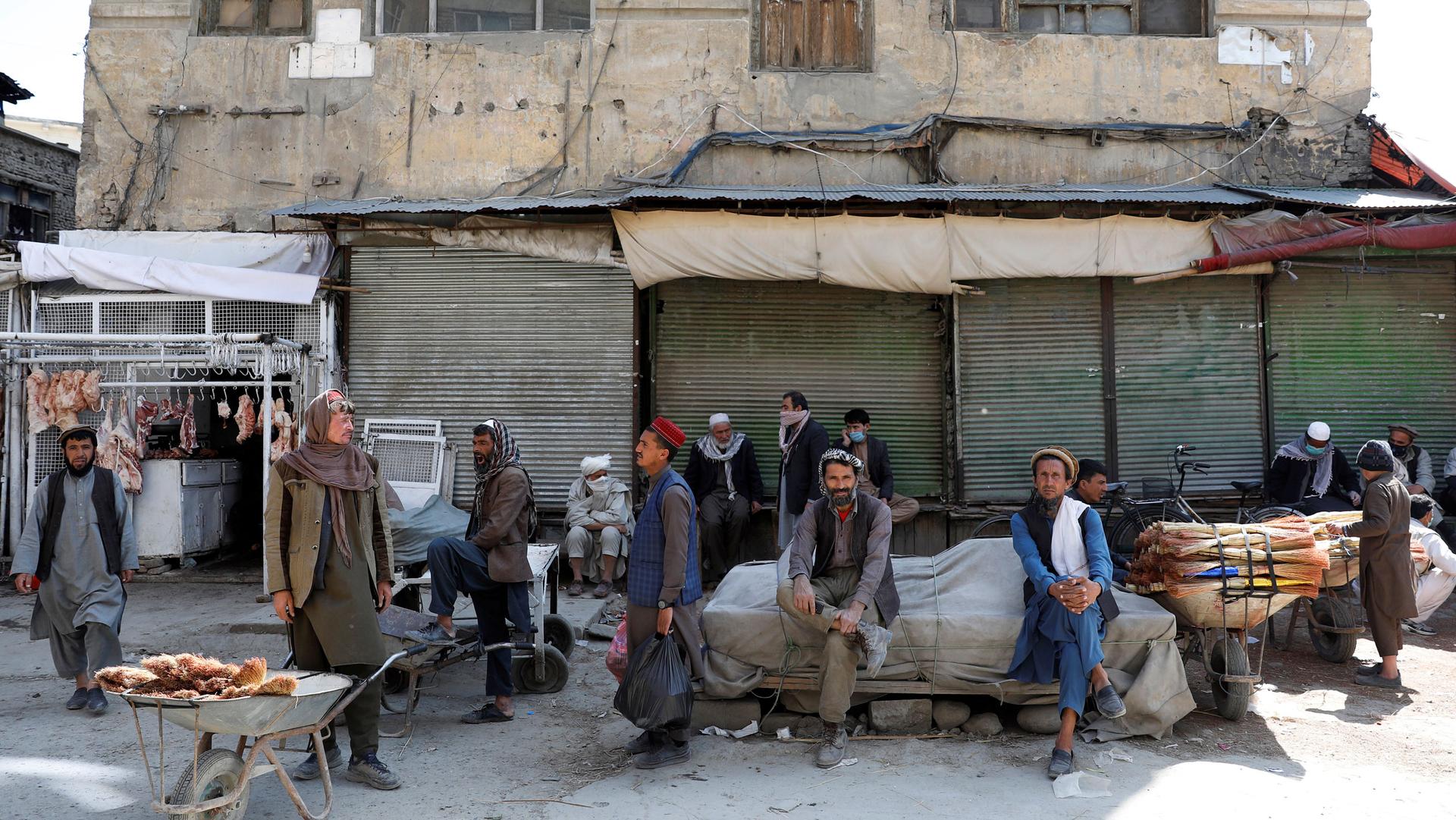1.5 billion could lose livelihoods; International students caught in limbo; Ghana’s dancing pallbearers go ‘viral’
A general view of an empty high street in Hemel Hempstead as the spread of coronavirus disease (COVID-19) continues, Britain March 24, 2020.
Top of The World — our morning news round up written by editors at The World. Subscribe here.
Shutdowns to combat the spread of the novel coronavirus have put huge numbers of people out of work. The International Labor Organization warns that 1.5 billion — or about half of workers across the world — are at risk of losing their livelihoods.
In the US, where confirmed cases of COVID-19 have surpassed 1 million, the economy is in its biggest decline since the Great Recession, shrinking 4.8% in the first quarter. Analysts say the second quarter could see a decline of 30%.
While some qualify for government aid, many victims of the coronavirus are left to handle the crisis with little support. In Turkey, hundreds of thousands of Syrians — many of whom are refugees fleeing the Syrian civil war — are left without the $170 a month Turkish workers can claim. And while the government hopes to revive the economy in late May, thousands fear eviction and wonder how they will feed their families.
And: The economics of a global emergency
Also: Trump orders US meat factories to stay open despite virus cases
Scientists identify airborne coronavirus in Wuhan hospitals
Genetic markers of the novel coronavirus has been found in the air in two hospitals in Wuhan, China, where the outbreak started. Scientists still do not know if the virus found in such airborne droplets remains infectious and is capable of transmitting the disease. But the findings, published as an unedited manuscript in Nature, add to the evidence that the virus could spread through the air.
Also: The secret group of scientists and billionaires pushing a Manhattan Project for COVID-19
COVID-19 shakes up international student life — and university budgets
An estimated 1.1 million international students were enrolled at US universities during the 2018-19 academic year. By paying tuition, renting apartments and buying books and supplies, they contributed an estimated $41 billion to the US economy. But international students have been forced to scramble as universities across the country closed in-person education this spring to slow the spread of the novel coronavirus. And there is still uncertainty about what the coming academic year will look like for international students.
And: Fasten your seatbelts: Global airlines face unprecedented turbulence
Irrfan Khan, Indian cinematic great, dies at 53
Irrfan Khan, one of Indian cinema’s most successful actors who starred in Hollywood productions like Life of Pi, Slumdog Millionaire and Jurassic World, has died at the age of 53. He was diagnosed in 2018 with a rare cancer.
And: Irrfan Khan — a life in pictures
Fires, orchestras, parachutes: Ways to describe coronavirus — besides war.
Leaders around the world have likened the battle against the novel coronavirus pandemic to a “war.” But why is this kind of rhetoric such a go-to for world leaders? And should we consider other metaphors? Metaphors allow us to see one thing in terms of another. Arguably, they are most effective when the comparison transforms our thinking. But there’s a danger in that, too.
And: Indigenous in Colombia take on armed groups — and coronavirus
Also: Lessons on hope from a Hungarian forced laborer in World War II
‘Stay home or dance with us’: Ghana’s dancing pallbearers urge social distancing
They dance with death. Literally. In Ghana, Nana Otafrija Pallbearing & Waiting Services, provides funeral services — featuring half-dozen men, often dressed in black and white suits and sunglasses. Known as dancing pallbearers, they get down to festive beats, all while carrying a coffin on their shoulders during funeral processions.
Danse macabre images date back to the middle ages. But in the time of the coronavirus, Ghana’s dancing pallbearers appear to have struck an especially popular — albeit morbid — chord.
Morning meme
Find yourself missing sports? These brothers have got you covered.

In case you missed it
Listen: Crisis-hit countries facing the potential of millions of deaths from coronavirus

The curve may be starting to flatten in Europe and in the US, but a new report suggests in many crisis-hit countries around the world, the worst may yet be ahead. And, Chile has considered a plan to issue people with “immunity passports” allowing them to return to work — but it has raised controversy. Also, professional sports leagues in most countries around the world have been either postponed or canceled, but this is not the case for the CPBL, Taiwan’s professional baseball league.
Don’t forget to subscribe to The World’s Latest Edition podcast using your favorite podcast player: RadioPublic, Apple Podcasts, Stitcher, Soundcloud, RSS
Our coverage reaches millions each week, but only a small fraction of listeners contribute to sustain our program. We still need 224 more people to donate $100 or $10/monthly to unlock our $67,000 match. Will you help us get there today?
